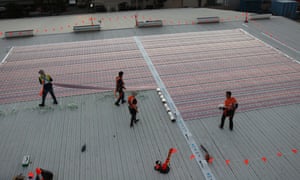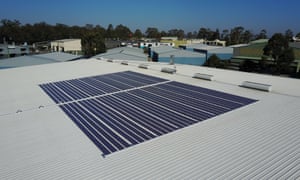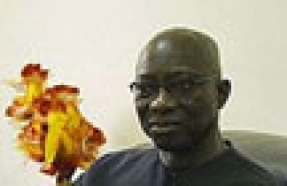
Deputy speaker of parliament Jacob Oulanyah
The ruling NRM is faced with another unattractive parliamentary battle; the reintroduction of the two-term presidential limits as part of an opposition push for elaborate electoral reforms ahead of the 2021 general election.
The reforms carried in The Constitutional (Amendment) Bill 2019 are pushed by Ndorwa East MP Wilfred Niwagaba and, got the much-needed parliamentary nod of approval last week hardly two years after the NRM-dominated parliament lifted the constitutional lower 35 and upper 75-year presidential age caps in December 2017.
Igara West MP Raphael Magyezi’s promoted age-limit bill cleared the last hurdle for President Museveni’s re-election in 2021 when he officially turns 75 years of age. Both the Attorney General William Byaruhanga and his deputy Mwesigwa Rukutana were not in parliament last week when deputy speaker Jacob Oulanyah opened up debate on Niwabaga’s motion seeking parliament permission to table his bill.
Finance Minister Matia Kasaija was a lone wolf. He tried but failed to kill the motion supported by an army of opposition legal minds in the House. Kasaija argued unsuccessfully for debate to be pushed to this week when either Byaruhanga or Rukutana would be in the House to defend government but Oulanyah didn’t budge.
“When I ruled [on August 29], I was clear; I said at the next sitting of parliament, this issue will be handled, that is why it is on the order paper. There is nothing new; it is a motion for leave, which has been with us for eight months. Both the attorney general and his deputy know the importance of the matter but they are both not here, after eight months, there is no excuse to delay this matter any longer,” Oulanyah said.
In his August 29 ruling, Oulanyah shot down government’s objections to the motion, especially arguments advanced earlier by Rukutana that the bill contradicted Article 93 of the Constitution and Rule 123 of the Parliamentary Rules of Procedure, which restrict private members from introducing bills that could have financial implications.
At the moment, Oulanyah argued, parliament was dealing with a motion to introduce a bill. Niwagaba’s bill has been on the shelves since January when he filed a notice of motion but met stiff resistance from government.
LONG FIGHT
Then, Justice and Constitutional Affairs minister Maj Gen Kahinda Otafiire told parliament that Niwagaba’s bill was unnecessary since the reforms being proposed by the shadow attorney general were part of the issues government intended to handle through the Constitutional Review Commission (CRC).
Speaker Rebecca Kadaga then gave Otafiire up to the end of April to table the reforms. The three months’ ultimatum passed without Museveni approving the list of nominees to the commission forwarded by Otafiire and no bill had been tabled in parliament.
When Byaruhanga on June 26 tabled five bills, Kadaga alerted Niwagaba to dust his motion and table it to give parliament an opportunity to comprehensively handle the various reforms that government has been ignoring since 2014.
This sent the government strategists back to the drawing board to plot another move to block the bill. (See: Govt moves to block opposition reforms, The Observer, August 7.)
Because the bill has proposals that are intended to clip Museveni’s powers as president, government will most likely go out of its way to kill it at the next stage.
NEXT HURDLE
While it was easy for government to give Magyezi the certificate of financial implication to back up what came to be popularly known as the age limit bill, the story will be different for Niwagaba.
Once his bill is published in the government gazette as required under Article 93, Niwagaba must get a certificate of financial implication before proceeding to table his bill in parliament for the first reading.
“Seeing how the government has been objecting to it, I don’t have any illusion that it will be a smooth ride for me to get a certificate of financial implication, but, I will do what the law requires me to do to get it,” Niwagaba told The Observer on Tuesday.
Under Rule 117 of parliament’s Rules of Procedure, Niwagaba is supposed to pick his bill’s certificate of financial implication from Kasaija. Should Kasaija refuse to issue the certificate, parliament will proceed under Rule 117(4) to process the bill.
“They [government] no longer have that so much power to refuse to issue the certificate; where it is denied without a valid reason, the speaker can allow the member to proceed with the bill. Government must have a justification, which they have to explain on the floor,” said opposition MP Mathias Mpuuga (Masaka Municipality).
Rule 117(4) states that a certificate of financial implication shall be deemed to have been issued after 60 days from the date of request for the certificate. Interviewed on Tuesday, Otafiire said, “I have been out of the country, I haven’t seen the bill.”
But Information minister Frank Tumwebaze said in a separate interview that government will give its views after an internal discussion.
“It will be discussed on merit. We are going to discuss it as government and give our views,” Tumwebaze said.
Key among Niwagaba’s proposals is locking out the president in the appointment of the chairperson and commissioners of the Electoral Commission under Article 60. He suggests the appointments should be made by the Judicial Service Commission.
He also proposes to amend Chapter Seven of the Constitution specifically Articles 99 (2) and 100 to replace the office of Vice President with the office of Deputy President plus Article 103 (2) to require every candidate in a presidential election to nominate a person who is qualified for election as president, as a candidate for deputy president.
He also proposes an amendment to Article 104 to allow any voter or political party or organization to challenge the outcome of a presidential election in addition to an aggrieved candidate.
He also wants to reintroduce Article 105(2) reinstating the two-term limits for a president.
sadabkk@observer.ug
Nb
Of course reinstating the two term limits must state that those presidential candidates who have already completed a two term limit of presidential rule or a four term limit rule before this rule must not stand in the future time of this bill if it becomes law.
Such a simple logic of law should not need this parliament to demand money from the suffering Uganda taxpayer.
keremire Quoting kabayekka:
Of course reinstating the two term limits must state that those presidential candidates who have already completed a two term limit of presidential rule or a four term limit rule before this rule must no stand in the future time of this bill if it becomes law. ......
No. New laws are not applied retrospectively. That is a basic principle in law that must be respected.
Indeed thank you keremire for your reminder. The law is an ass. To look at things as they have happened in the past is what the 4th or 5th National Constitution of Uganda is all about. What one believes is that the next rule(Post M7) of this country is likely to dumb this current man made constitution in the dust bin. It is of what one believes is God and that is Supreme. Many Germany citizens during the 1930/45 believed and respected in the Supremacy of Heil Hitler at their own peril.




 Mr Severino Lukoya walks out of Gulu Central Police Station last year after briefly being detained following the death of a child at his temple.
Mr Severino Lukoya walks out of Gulu Central Police Station last year after briefly being detained following the death of a child at his temple.


































